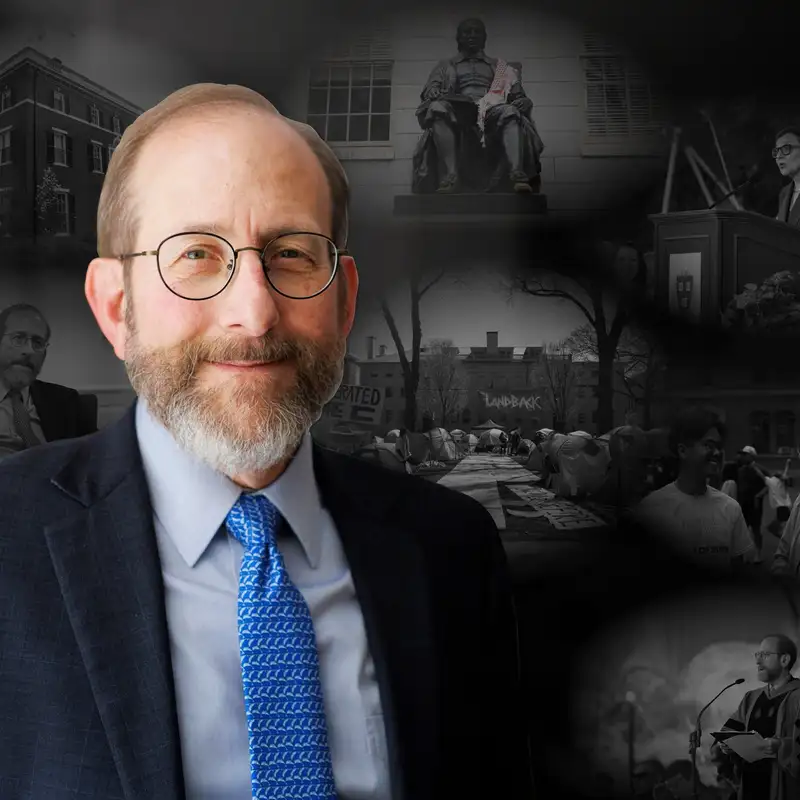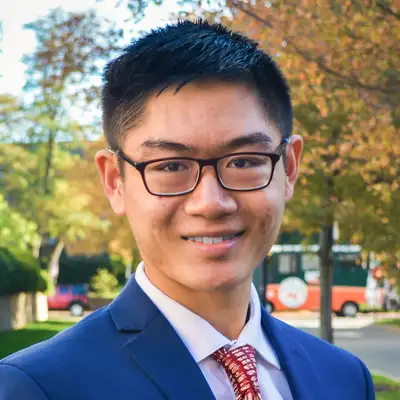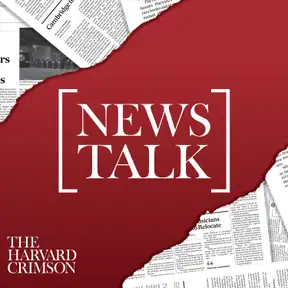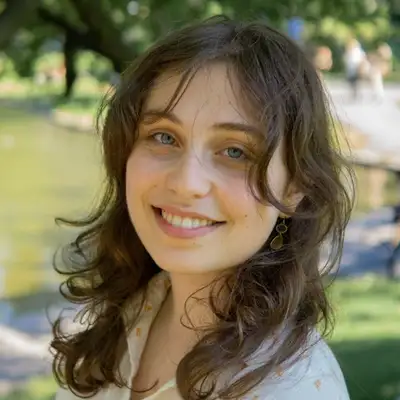
Garber's Path to the Harvard Presidency
[This transcript was generated automatically by Transistor. Its accuracy may vary.]
Yael S. Goldstein:It's Harvard's 2nd week back in class, and campus tensions are already back in the headlines.
Frank S. Zhou:2 Harvard graduate students charged with assault and battery during a pro Palestine protest last May face yet another delay in their arraignment date.
Yael S. Goldstein:A September 5th statement from the university provided updated guidance for those affected by doxxing attacks, following widespread criticism of its failure to protect students.
Frank S. Zhou:On Friday, president Alan Garber met with 8 members of Harvard out of occupy Palestine in the Smith Campus Center to discuss the Harvard endowment. Outside the building, more than 80 students demanded divestment from Israel in the first pro Palestine protest of the semester.
Yael S. Goldstein:And from our colleagues on the news desk, a deep dive into the Harvard Corporation's selection How did Alan Garber successfully secure his position after a semester of extraordinary crisis?
Frank S. Zhou:I'm Frank Zhou.
Yael S. Goldstein:And I'm Yael Goldstein.
Frank S. Zhou:From 14 Plympton Street, this is News Talk. So last November, Ilham Teddi Tomaklou was indefinitely relieved from his position as proctor at the college after a video of a confrontation at an October 18th protest on the Harvard Business School campus went viral. At the 18th protest on the Harvard Business School campus went viral. At the protest, a Jewish student entered a crowd of pro Palestine protesters holding out his phone and filming their faces. Teddy Tamaklo and Ibrahim Barmal, 2 Harvard graduate students, are pictured approaching and escorting the Israeli student out of the protest, covering his phone camera with their kefiras and security vests.
Frank S. Zhou:As a student dodges the kefiras, he comes into physical contact with the protesters. The video itself is quite short and you can hear him say, don't touch me in it.
Yael S. Goldstein:And so this video makes its rounds on the Internet and sparks outrage from alumni, including billionaire alum Bill Ackman, as well as representative Elise Stefanik, who notably accused Harvard of delaying justice in this case. In May, both Teddy Tamaklo and Barmal were charged with 2 misdemeanors for assault and battery. The arraignment was meant to take place in July, but then it was pushed to last Wednesday. The date has now been pushed once again, making it the second postponement. The prosecutor from the Suffolk County District Attorney's Office hopes for a prolonged investigation by the Harvard University Police Department into additional individuals present at the protest.
Frank S. Zhou:The new court date is October 22nd. Until then, the case remains stalled.
Yael S. Goldstein:In other campus news, the administration released new guidance on doxxing and online harassment this past Thursday. The email signed by 18 of Harvard's most senior officials came after months of criticism from some Harvard affiliates that the university has failed to adequately address severe doxing attacks against its students.
Frank S. Zhou:And it all started last fall when a statement by the Palestine Solidarity Committee holding Israel, quote, entirely responsible for the events on October 7th sparked widespread backlash and criticism across the nation. In the weeks following, students in many of the 30 groups that signed on to the statement found their personal information posted online, identifying them as anti Semites and terrorist sympathizers. A billboard truck funded by the conservative media advocacy group, Accuracy in Media, then drove around Cambridge with names and photos of student organizers on screen.
Yael S. Goldstein:And while Harvard eventually established a task force on doxing, some students described it as, quote, too little, too late. Some students have said that Harvard only began offering resources on how to remove one's personal information on the Internet only after that information had already been online for weeks.
Frank S. Zhou:And that wasn't all. Another doxing truck arrived on campus in the spring, which reopened conversations around the university's ability to protect its students. HLS students, Harvard Law School students, staged a sit in at the law school's dean of student's office to express their dissatisfaction with a level of protection from their school.
Yael S. Goldstein:Now the administration has offered updated guidance on doxxing in a statement signed by president Alan Garber and with the blessing of the Harvard Corporation. The university can't do much to prosecute non Harvard affiliates, but it has made clear that Harvard affiliates who publicly share a peer's personal information in order to provoke, quote, harmful interpersonal aggression are in violation of university policies.
Frank S. Zhou:The administration has promised to revisit these guidelines and adjust them as needed in 2 years.
Yael S. Goldstein:In addition to releasing the updated guidance on doxxing, Garber also met with a pro Palestine activist on Friday about the Harvard endowment.
Frank S. Zhou:Yeah. If you walked by campus Friday, you'd seen more than 80 pro Palestine protesters chanting outside the Smith Campus Center as 8 representatives of Harvard out of occupied Palestine met with Garber, a member of the Harvard Corporation and the Harvard Management Company staff inside.
Yael S. Goldstein:And this meeting was a long time coming. When Garber negotiated a peaceful end to the encampment last spring, he promised to arrange a face to face between protesters and top university officials.
Frank S. Zhou:Harvard out of occupied Palestine organizers have been hesitant to call the meeting a discussion because they saw it as an information session about the endowment rather than a serious discussion about divestment.
Yael S. Goldstein:And Harvard officials have also said that the meeting was not a concession to the protesters. A similar discussion
Frank S. Zhou:was also held on Thursday with Jewish students.
Yael S. Goldstein:So we're not exactly sure how much change
Frank S. Zhou:exactly sure how much change will come out of these meetings, but what we do know is that it came with the first protest this semester and that Harvard out of occupied Palestine has no plans of slowing down.
Yael S. Goldstein:You can read the rest of our headlines at thecrimson.com.
Frank S. Zhou:And stay tuned for Garber's path to the presidency after the break. Ever since high school, we've loved reading The Economist. Not only because it helps us broaden our perspective on everything that's going on in the world, but also because it helps us and our friends stay on top of expert analysis.
Yael S. Goldstein:That's why we're so excited to share that free student plans are now available for Harvard Newstalk listeners. Get independent journalism for independent thinkers. Explore videos, audio, articles, a podcast, and more. And be the whiz the world needs.
Frank S. Zhou:Just to give you an idea of what I'm talking about, I've pulled out something that caught my eye this week. How Boston became the safest big city in America. And will the debate between Kamala Harris and Donald Trump matter? The Economist's deeply researched analysis allows me to hone in on what matters the most.
Yael S. Goldstein:And if you're not a student, The Economist offers monthly, annual, and multiyear plans, some with a free trial.
Frank S. Zhou:Go to economist.com/harvardnewstock and sign up today. That's economist.com/harvardnewstock.
Yael S. Goldstein:So our colleagues, Emma Hyder, Kim Kettles, Tully Robinson, and Neil Shah put out a terrific piece last week on Garber's rise to the presidency, the whole selection process. And I really think we should talk about it.
Frank S. Zhou:Yeah. Because this really was one of our biggest questions as a university, right, last year. And now we're really getting a fuller answer. In one way, it seems like not much has changed. I mean, think about it.
Frank S. Zhou:How different is interim president from president?
Yael S. Goldstein:Yeah. I've definitely been thinking that.
Frank S. Zhou:Right. And I think a lot of people would probably be there. But, I mean, in another way, Garber's rise is kind of extraordinary. We all know that he was a long time university insider. But this time last year, man was getting ready to retire.
Frank S. Zhou:And even when he did rise to become the interim president, I mean, he was supposed to be cleaning up some of the biggest crises the university has seen in decades, right, let alone some of the greatest crises of his own career. So he really had to try to do what other university leaders had tried to do and couldn't.
Yael S. Goldstein:I mean, we did witness disaster after disaster as other university leaders took action against incumbents on their own respective campuses. And Garber kind of maneuvered his way through that same type of scrutiny From the standpoint of the Harvard administration, as our colleagues reported, he really was an expert tactician. And they also note that the encampment isn't quite where the story of his rise to the top begins. It it really begins with Claudine Gay's resignation.
Frank S. Zhou:Yeah. And that would take us all the way back to January, to the moment Claudine Gay resigned. At the time, Harvard was facing its worst leadership crisis in decades. I mean, Harvard 69 year old provost had seemed to be nearing the end of his career. He'd been the university's number 2 for a dozen years and served under 3 presidents at that point.
Frank S. Zhou:I mean, he'd been passed up for the presidency too in 2017. And, you know, when Claudine Gay came along as the university's first black president, and when she was selected in December 2022, she seemed to be a higher education celebrity.
Yael S. Goldstein:Obviously, I think we know that quickly fell apart after October 7th. It seemed like Gaye was doing too little too late. She stumbled before Congress and then faced a series of plagiarism allegations. And even though the corporation was behind her, at some point it became too much and she resigned. So then it all fell to the number 2 and and that was Alan Garber.
Yael S. Goldstein:By January, he was Harvard's newest interim president. And I I personally wasn't all that surprised for you.
Frank S. Zhou:Not really. He was the university's number 2 heading into all of this after all, so it kinda made sense for him to rise. And that experience really quickly showed. I mean, within his first three weeks, as our colleagues reported, Garber had announced the formation of not 1, but 2 presidential task forces, one to combat campus antisemitism and the other to combat anti Arab and anti Muslim bias. He made clear to protesters that he would strictly enforce the university's guidelines on campus protests.
Frank S. Zhou:And, you know, in the weeks after, he held his ground after coming under fire for his pick for the cochair of the antisemitism task force. By the time spring break rolled around, he also hit the road. Right? Meeting with hundreds of alumni in London and in Miami to pitch Harvard and to mend relationships with donors. He did a lot.
Yael S. Goldstein:Right. And and all of that's significant. He, you know, he did his due diligence. And as our 4 reporters know in their piece, it really made Garber look like a solid pick for president in the eyes of the Harvard Corporation. But then came the encampment.
Yael S. Goldstein:And at the time this seemed like a complete catch 22 that could sink any hopes of a permanent presidency. I mean, just look at Columbia. It was all over the news when president Manoush Shafiq called in the police to remove protesters. Then, you know, the faculty called a vote of no confidence, and she ultimately resigned this August.
Frank S. Zhou:Yeah.
Yael S. Goldstein:Our reporters also pointed us to Brown, Rutgers, Northwestern who, you know, kinda went the other way when they negotiated their way to peaceful resolutions with their encampments. It really angered major donors and lawmakers. You know, even one member of Brown's board of trustees resigned yesterday over Pound's, upcoming vote on divestment from Israel. So how was Garber supposed to approach what seemed like an impossible situation and under a national spotlight at that?
Frank S. Zhou:Yeah. I mean, it kind of was the ultimate test, as our reporters say. Right? And one that would make or break his shot at a permanent presidency. If you look at just his strategy heading into the encampment, he at first, he just tried to wait it out.
Frank S. Zhou:I mean, he wasn't a sitting duck by any stretch, days before the Harvard encampment began. You know, having seen Columbia's encampments and others across the country, the university had closed down Harvard Yard in a preemptive measure. When the encampment began, you know, the tents were sort of slowly eating up the yard. You could see them stretching from one end of it to the other. And the university was forced to move around its final exam locations and continued barring non Harvard affiliates from entering, paid for around the clock security overtime with eyes on the encampment.
Frank S. Zhou:Right? This is police working late into the night just as us reporters were.
Yael S. Goldstein:Yeah. And and meanwhile, Garver, you know, he didn't really seem to acknowledge it or even talk to the student protesters.
Frank S. Zhou:Yeah. I mean, Emma and Cam have been reporting on this for months. But as commencement neared and the attempts to ignore the encampment became less workable for Garber, he had to slowly turn up the pressure. And he really did, really put his foot down by putting more than 20 participants of the encampment on involuntary leave.
Yael S. Goldstein:Yeah. But that didn't change much. Right? So he rolled out a final offer, which is essentially where Emma, Cam, Tilly and Neil opened their piece.
Frank S. Zhou:That final offer is key. Right? And it's kind of where he tries to split the difference. You know, he'd offer students a chance to be reinstated from involuntary leave, and talk to top Harvard administrators about the endowment. And so that really then put the ball in the Encampment members court.
Yael S. Goldstein:Right. Right. Right. And they took it, by early the next morning, you know, they were packed up and they took with them more than 2 weeks worth of tents, banners, sleeping bags, kefias.
Frank S. Zhou:Yeah.
Yael S. Goldstein:And, you know, a lot of late nights too.
Frank S. Zhou:Yeah. I, I still remember the stillness of that last night. Yeah. Harvard Yard had been closed off to the public for weeks. And it really felt like the end of an era.
Yael S. Goldstein:Definitely, the end of an era. But here's the thing that Garber knew as the students carted their tents out of Harvard Yard and and what really made him a great pick in the eyes of the corporation. Even as he promised conversations, he'd made clear that divestment from Israel was off the table. He was willing to protect the university's interests even when it was unpopular. And to to many of those watching, he'd he'd done it with a steady hand befitting of the university's permanent president.
Frank S. Zhou:Yeah. After all that, we fast forward to August 2nd, you know, 7 months to the day when Garber was named the interim president by the Harvard Corporation. It's this day that they chose to announce him as Harvard's permanent leader. Right? He'd be appointed to serve for 3 more years until June 2027.
Frank S. Zhou:He's gonna be here until at least when both of us graduate. Right? Right. Our provost had gone from a placeholder to a president.
Yael S. Goldstein:Right. So the Harvard Corporation has made clear that it has exceptional faith in Alan Garber. And now we'll see if he keeps living up to it.
Frank S. Zhou:Huge thank you to Emma, Cam, Tilly, and Neil for their phenomenal reporting. The segment wouldn't be possible at all without it. We'll see you next week. News Talk is co hosted and coproduced by Yael S. Goldstein and Frank S.
Frank S. Zhou:Zhou. Our multimedia chairs are Addison Y. Liu and Julian J. Giordano. Our associate managing editors are Elias J.
Frank S. Zhou:Schisgall and Claire Yuan. Our managing editor is Miles J. Herszenhorn. Our president is J. Sellers Hill. From 14th Plympton Street, this is Newstalk.
Creators and Guests


